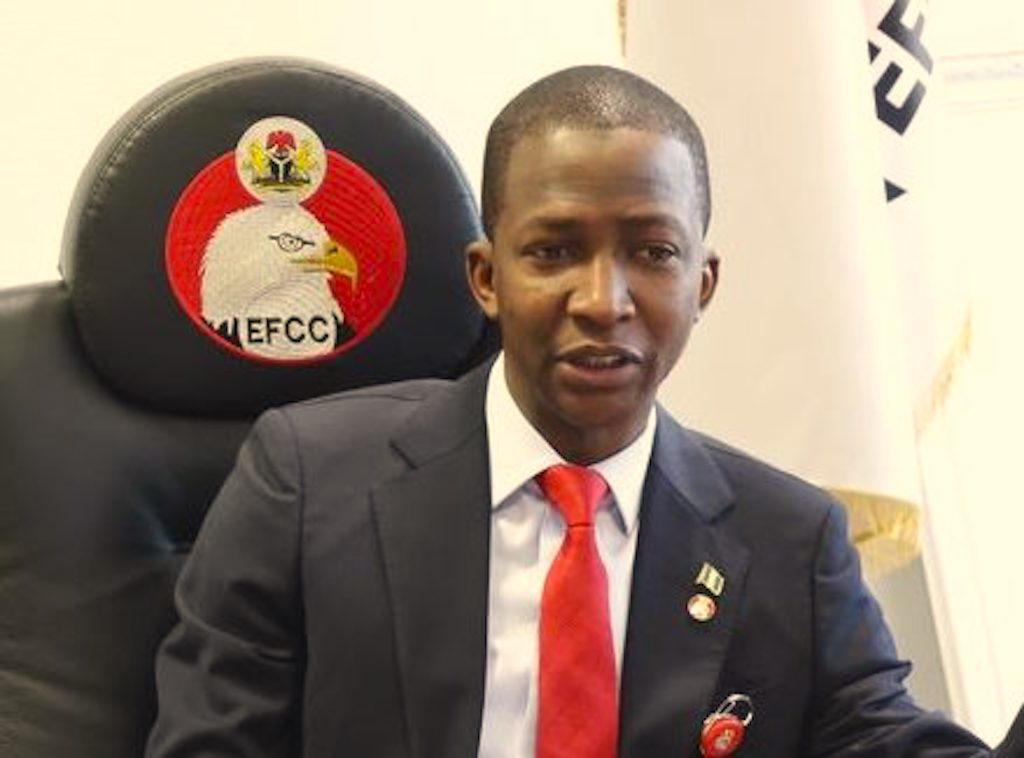Former EFCC Chairman, Abdulrasheed Bawa, has revealed how billions of naira vanished under Nigeria’s fuel subsidy regime.
Bawa made the revelation in his newly published book titled The Shadow of Loot & Losses.
He detailed shocking cases of fraud in the petroleum sector spanning several years.
The book was released by CableBooks, an imprint of Cable Media & Publishing Ltd.
It documents how fake imports, over-invoicing and forged records drained Nigeria’s public treasury.
Multiple Payments on Single Shipments
According to Bawa, a single fuel shipment was often used to collect multiple subsidy payments.
In further explanation,he emphasize how companies submitted the same documentation repeatedly to claim fresh funds.
Bawa alleged that subsidised fuel was also sold on the black market or smuggled out of the country.
He claimed this practice created artificial fuel scarcity while enriching a corrupt elite.
Ghost Imports and Over-Invoicing
The former EFCC boss said firms claimed money for fuel never brought into Nigeria.
In some cases, the companies inflated the volume of their shipments to claim extra payouts.
He said these acts were made possible by forged documents and collusion with public officials.
Bawa revealed that government regulators either looked away or actively participated in the fraud.
Manipulation of Shipping Documents
He exposed how bills of lading were tampered with to claim inflated subsidy figures.
Fraudsters allegedly timed these manipulations to exploit global price changes in petroleum products.
This allowed them to collect more money than was due from the subsidy system.
Systemic Collusion Between Officials and Companies
Bawa accused government officials and business owners of working hand in hand to loot funds.
According to him, the fraud extended across multiple agencies in the oil and finance sectors.
The book exposes how weak oversight allowed criminal networks to thrive unchecked.
According to him, Nigeria’s oil sector was bleeding money while citizens faced economic hardship.
Call for Reforms and Accountability
Bawa described his book as a call for deep reforms in Nigeria’s public finance management.
Despite that, he urged the government to embrace transparency and accountability in the oil sector.
Furthermore he warned that unless urgent action is taken, the same frauds will continue unchecked.
Indeed he believes reforming the subsidy regime is essential to saving Nigeria’s economy.







